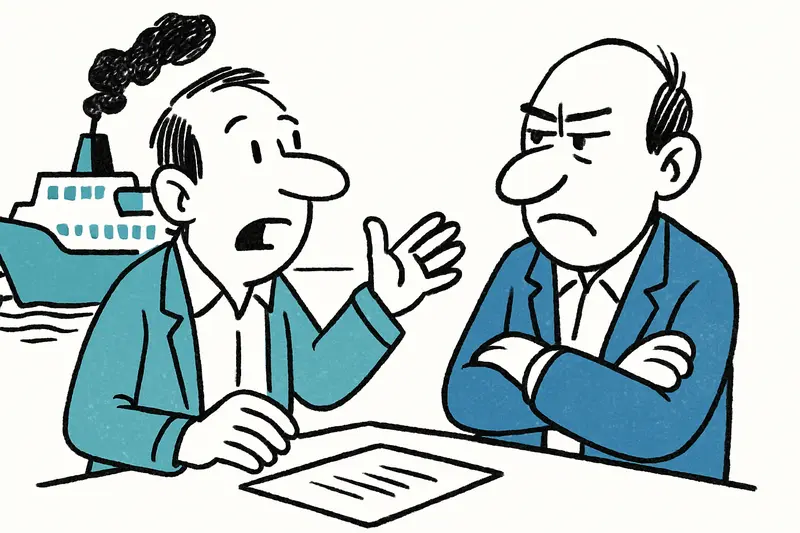At an international gathering in Palma, politicians, port operators and companies discussed reducing diesel in the water: shore power, electric ferries, and clear rules should make shipping cleaner.
More Power Instead of Ship Diesel: A Topic Discussed at the Port
On a sunny morning in early September, politicians, shipyard chiefs and startup founders met at Palma's harbor for a forum that sounded more like a future project than an after-work talk. The tables were filled with brochures, the coffee was strong, and outside the sea glittered like a second canvas.
What Was It About Exactly?
In short: less heavy fuel oil, less smoke, more electricity on board. The Balearic government says it has allocated around 15 million euros in recent years to support retrofits. The result: roughly about a hundred electric or hybrid boats are already sailing in the island waters. That's a start, but given the size of Palma's fleet it still feels like a drop in the harbor basin.
Shore power was the keyword that kept coming up. As soon as ferries or cargo ships lie at the quay for longer periods, they should be able to draw power from the grid rather than running the engines. First facilities are already running or under construction: Palma tops the list, followed by ports such as Ciutadella, Maó, Alcúdia and La Savina.
International Voices and Local Expectations
Representatives from several countries attended: the founder of an NGO for emission-free boats, representatives from German transportation authorities and CEOs of port operators. The message was clear, though packaged differently: the technology is there, but without uniform standards and subsidies progress is slow.
One visitor dryly noted that international cooperation rarely leads as quickly to a funding program as in these discussions. Still: there was consensus that private yachts are not the main problem – it's the ferries, charter and freight ships that account for the largest share of emissions.
What Does This Mean for Everyday Life on the Island?
For visitors this could mean: a calmer harbor, less diesel odor when maneuvering to berth, perhaps a quieter Cross-Channel experience. For businesses it means investing in charging infrastructure, larger batteries and long-term maintenance concepts. That it costs money was discussed openly. That it is also necessary.
At the end of the day, strategy papers and letters of intent lay on the table. Whether rapid visible change will emerge from the thick folders now depends on funding decisions, standards, and on who pays. But one thing was palpable: on Mallorca there is growing willingness to use the port as a lab for clean solutions – slow, pragmatic, and with the occasional coffee stain on the protocol.
Similar News

Mallorca's service providers brace for a lean winter as businesses plan earlier closures
After a weaker summer, many restaurants, bars and shops on Mallorca expect lower off-season revenues. Higher levies and ...

Playa de Palma's Party Strip: Tourists Celebrate – Many Locals Struggle for Money
El Arenal is full of sun umbrellas and sangria, yet the district ranks among Palma's poorest areas. A look behind Playa ...

Palma's Metro to Son Espases Hospital Extended
Balearic Islands president Marga Prohens has announced that the Palma metro line will be extended to Son Espases Hospita...

Imserso sale starts: Senior trips to the Balearic Islands now bookable
From 9:00 AM retirees can book the Imserso trips to the Balearic Islands. Few places, new discounts — and pets allowed f...

When One Job Isn't Enough: Why Many in Mallorca Need Two or More Jobs
On Mallorca, many people take on multiple jobs to cope with rising rents and living costs. A look at reasons and consequ...
